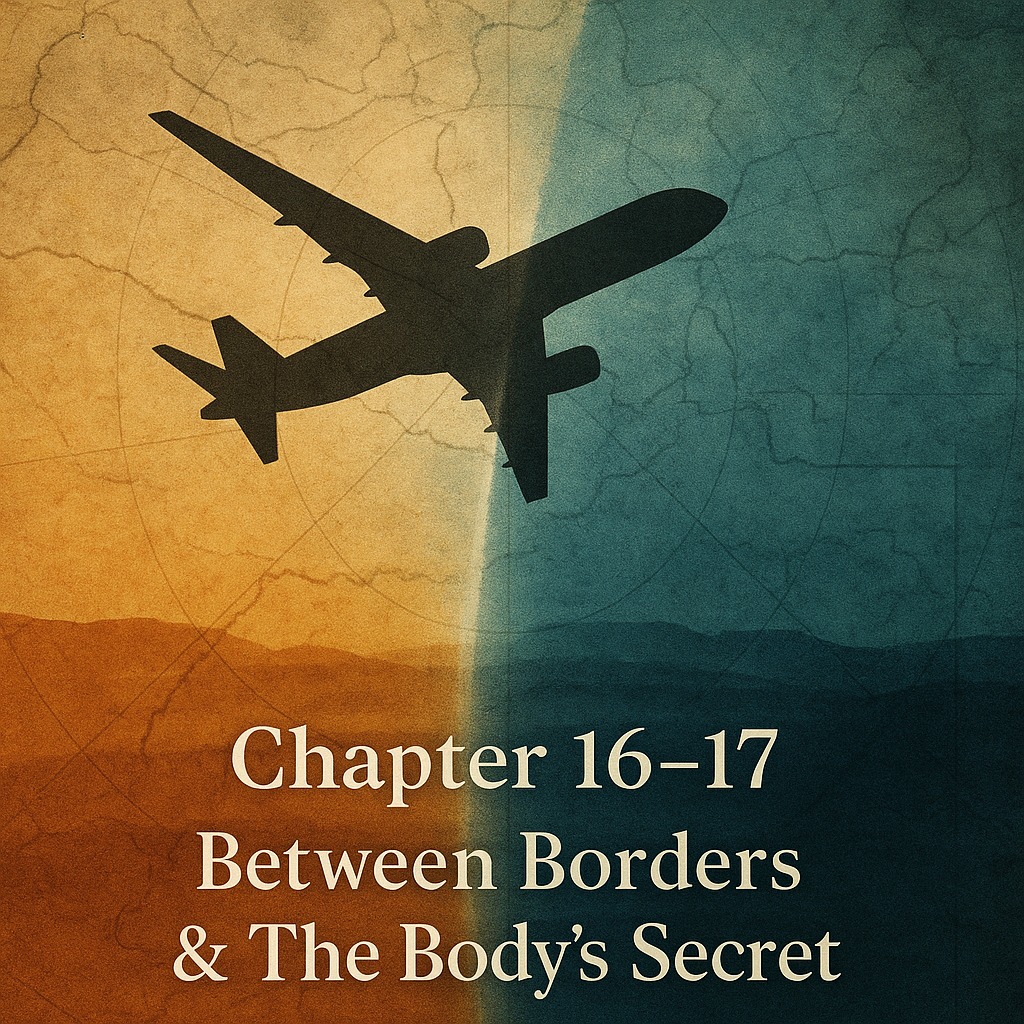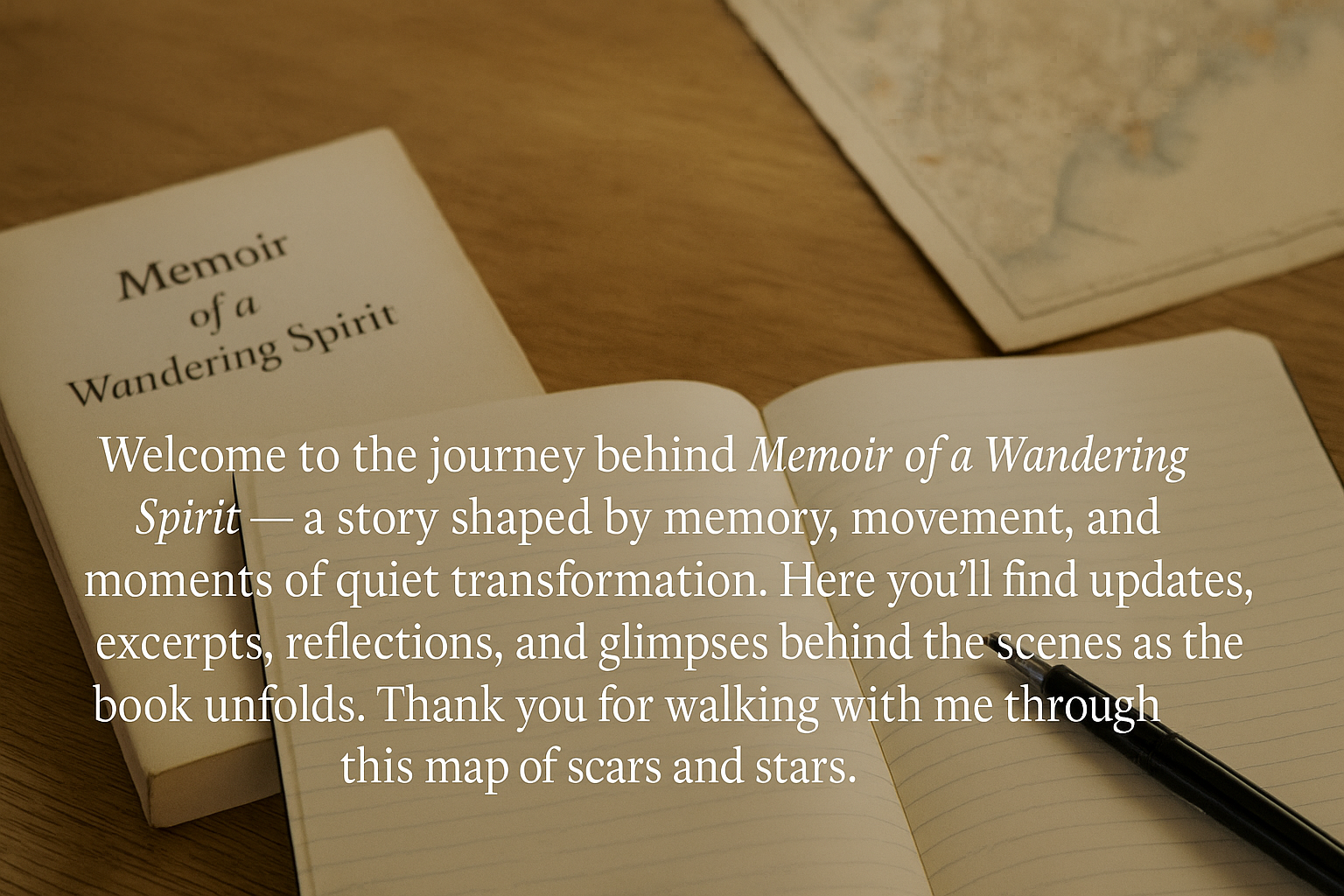Chapter Updates: Between Borders & The Body’s Secret

Chapter 16: Between Borders
From the rooftop silence of Wau, where survival was written in dust and endurance, Kacper’s life kept stretching outward. The war had turned Wau into an island, but his work required crossings — north to Khartoum, east to fragile corners of Sudan, south to Nairobi, and sometimes further still, back to Paris or even Dublin. Each journey felt like slipping through a membrane: from Antonovs rattling over frontlines to the polished calm of Parisian cafés, from the immediacy of war to the cities that only brushed it through reports and statistics.
“Flying itself carried that same mixture of threshold and uncertainty. Once, on a journey to Khartoum aboard a Sudan Airways Antonov, Kacper found himself part of a scene that seemed almost too absurd to be real. The pilots were Russian, the rest of the crew Sudanese. Before take-off the plane sank into a patch of mud at the edge of the tarmac, and the solution was announced without hesitation: the passengers would push. Under the hot sun they leaned their shoulders into the steel belly of the aircraft, straining until the wheels rolled onto firmer ground. By then the engines had overheated, and one of the pilots, utterly unfazed, cooled them by pouring buckets of water over the metal as though dousing an animal after work. Kacper felt dread rising like a tide — his chest tight, his legs light with the urge to faint. Yet the crew’s calm, their matter-of-factness, made the surreal seem routine. If we die, he thought, it will at least be a highly unusual death. The thought itself, absurd and strangely comforting, carried him back on board.”
Flying became a theatre of the surreal. On one flight to Khartoum, passengers were asked to push the plane out of a patch of mud before overheated engines were cooled with buckets of water. Every border crossed was not just geographic but existential — between safety and danger, belonging and estrangement.
Chapter 17: The Body’s Secret
The battles outside soon gave way to one within. A sudden illness sent Kacper from Khartoum’s clinics into a whirlwind of uncertainty. The doctors whispered a word heavier than any he had carried before: cancer. The diagnosis was uncertain, yet its echo hollowed him out. Evacuation orders followed swiftly — first Paris, then Nairobi.
“The word cancer had not yet been confirmed, but it lingered in every silence, in every doctor’s lowered glance. It was not the war outside anymore. It was the possibility of a war inside.”
What had once been the rhythm of war became the rhythm of waiting rooms, procedures, and fragile reassurances. He lay under anaesthesia in Khartoum, endured colonoscopies in Nairobi, and later found himself at the Pasteur Institute in Paris, all within weeks. Four scopes, a surgery, and the gnawing thought that the fight might now be inside his own body.
“That evening, at Rue Niepce, the GNI team organised a small party. It felt good to be among familiar faces, who celebrated his recovery as warmly as he did. Kacper retold the story in all its strange twists: the Khartoum surgeon cutting into him for “haemorrhoids”, the colonoscopy that followed, the chaos of the flight to Kenya, the sudden death of his doctor, two more in Nairobi, the absurdity of a first-class ticket to Europe, and finally another at the Pasteur Institute — four colonoscopies and a surgery in a single month. The sheer improbability of it drew laughter, not mocking but grateful, a shared release — a celebration of life, survival, and the strange roads they take.”
Yet amid the fear there were moments of light — the relief of hearing that it was not cancer but a chronic condition to be managed, the bittersweet awareness of life’s precarious edge. Between borders of land and sky, of illness and health, Kacper found himself waiting, suspended between endings and beginnings.

